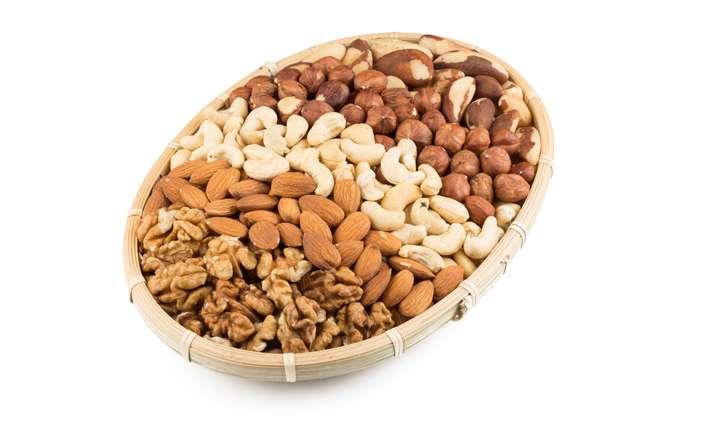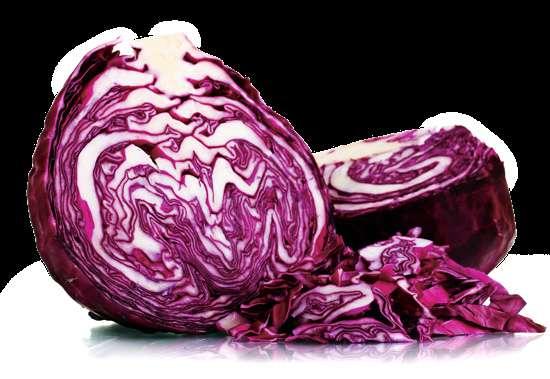
8 minute read
The Circuit
The
NEWS | TIPS | FACTS CIRCUIT
Advertisement
Heat things up
Those brave enough to back up the sweaty February/March days with a hot yoga class or two, take note: in one of the first studies measuring hot yoga’s impact on blood pressure, the American Heart Association found that just three months’ worth of classes lowered blood pressure and decreased stress in participants with elevated blood pressure or hypertension. High blood pressure is the number one risk factor for stroke and a major contributor to heart disease, but take precautions when you’re exercising in a room that’s heated to around 40 degrees Celsius. Arrive hydrated, drink water throughout the class, dress appropriately, and know the signs of heat illness.
Train your focus

When you’re lifting heavy in the gym, do you employ a mind-muscle connection, visualising the muscle contracting and lengthening elegantly in each set? Or are you just thinking about getting that barbell where you want it? Frontiers in Sports and Active Living found that both methods are beneficial, but one comes out on top when your goal is to move big weights.
Mind-muscle connection
▸ Better for beginners who need to focus on form ▸ Increased muscle hypotrophy ▸ This advantage seems to disappear altogether at 80 per cent of your max effort Externally focused efforts
▸ Less effort exerted ▸ Fires up ‘automatic operators’ in your body ▸ Complements dissociative practices such as listening to music
Strange, but true The blood pressurelowering effect of exercise was significantly reduced for participants who had just swished with antibacterial mouthwash. Turns out, oral bacteria is an important gateway for cardiovascular health. Who knew?
4,000
Just this many steps per day is enough to boost the memory and learning centres of your brain.

Join the resistance! A new position statement issued by a global expert panel declares resistance training is vital to older adults’ health and longevity, and positively affects physical wellbeing, independence and disease management. They even mentioned the potential benefits outweigh the possible risk factors. No excuses!
Home cook your health

New research in Environmental Health Perspectives confirms cooking at home is not only the best way to eat for your health and your body composition, but also reduces the amount of chemicals you consume. Per- and poly-fluoroalkyl substances (PFAS) are chemicals found in packaged foods, and have been linked to everything from reproductive and developmental issues to high cholesterol. Those who frequented restaurants and fastfood chains had significantly higher levels of PFAS in their blood compared to those who regularly cooked at home. Another place PFAS are found? Microwave popcorn! So, if you can, find another way to get through movie night.
In a nutshell
We don’t discriminate when it comes to nuts, but these ones come out on top in each category:

HIGH LEVELS OF… THE WINNER IS… PROTEIN PEANUTS OMEGA-3 WALNUTS MONOUNSATURATED FAT MACADAMIAS CALCIUM ALMONDS SELENIUM BRAZILS
Warning signs
New research from Deakin University’s Institute for Health Transformation showed that even those who experience infrequent binge eating episodes or enforce restrictive diets – typically considered below the eating disorder ‘threshold’ – still reported significantly lower quality of life than the rest of the population. The study looked at data from more than 5,000 South Australians, and found 18 per cent of the sample showed symptoms associated with an eating disorder – a reminder to not ignore the early warning signs, in others or in yourself.
Antioxidant spotlight: Glutathione What it is: An antioxidant produced in the liver that helps neutralise free radicals and lower oxidative stress in the body’s cells. Why you need it: Production levels naturally decrease with age, and can lead to glaucoma and macular degeneration. How to get it: Eat sulfur-rich foods such as meat, eggs, onions and cabbage, consume dairy and whey products, and get plenty of exercise to keep your production level healthy.

NEVER MISS AN ISSUE!

Get STRONG Australia
delivered straight to your door or your inbox.
Head over to strongfitnessmag.com.au/subscribe now to purchase a digital or print subscription for more than 25% OFF the RRP.
Heaps of extra goodies included! Subscriber only discounts, specials, giveaways, videos of behind the scenes, meet and greets, and so much more!

Got a goal? Here’s exactly who you should tell it to.
Aim higher
An Ohio State University study recommends you tell the world about your goals – or at least someone you admire. Its research showed that participants who set a goal and then verbalised it to a person in a higher-ranking position than themselves, such as a coach or mentor, were much more likely to commit to their goal and work harder at achieving it. When they told someone whose opinion didn’t matter to them quite as much, their results were on par with a group who kept their goals to themselves.
Social anxiety

Research from Lancaster University found that social media is stressing us out, and using that stress to keep us addicted. In just one social platform (it used Facebook), you could be posting, creeping friends, chatting in direct messages and scrolling your feed, and just as one of those activities becomes too much to handle, you can easily switch to a different one, blurring the line between stress and compulsion. Our advice? When you find yourself mindlessly scrolling, that’s your cue to put the phone away and find a different coping mechanism.
Mind your gut Irritable bowel syndrome (IBS) definitely isn’t all in your head, but your mind might have something to do with finding relief, according to a recent study. Sufferers underwent cognitive behavioural therapy (CBT) over the phone or over the internet, with the conversation specifically tailored for IBS, and the results showed that symptoms improved considerably.
16 mins
Losing just this much sleep in your regularly clocked hours can cause you to have poorer judgement and less focus the next day at work.

Supplements for a happy heart A metanalysis of almost one million people confirmed which supplements are proven to be beneficial for heart health (and which aren’t).

Good for your ticker:
♦ Folate ♦ Omega-3 ♦ Low-salt diet (okay, not a supplement, but researchers were adamant about this one )
The evidence is weak:

♦ Vitamins A, B, C, D, E ♦ Beta-carotene ♦ Calcium ♦ Iron ♦ Antioxidants ♦ Multivitamin s
Shake shock
This may come as a surprise for loyal whey fans, but your postworkout protein shake may have no more effect on muscle soreness or performance than a carbohydrate drink. In a recent small-scale study published in the Journal of Human Kinetics , researchers tested the results of consuming shakes containing either a whey or milk protein combined with carbs or a carbohydrateonly beverage immediately following resistance training, and found zero difference in recovery time or performance in the gym up to 48 hours later. But before you toss your pro powders, researchers note that protein is still important for improving strength and muscle mass, and the results could point more to the fact that all three options produced the same speed of recovery.

Whey is great for gains, but does it speed recovery better than other powders?
75mg
The recommended dietary allowance of vitamin C for females each day.
Vitamin C overload Cold and flu season isn’t too far away and that may have you reaching for extra vitamin C. But if you experience diarrhoea, nausea, stomach cramping, bloating or general abdominal discomfort, it could be a sign you’ve overdone it.
Smart habits

Need another reason to make healthy choices? Doing so may reduce your risk of dementia later in life. In a large-scale study published in JAMA, dementia-free participants over 60 years old were examined for genetic variants that are associated with dementia, along with a ‘healthy lifestyle score’, which included factors such as smoking, physical activity, diet and alcohol consumption. While those who were predisposed to dementia were very likely to eventually develop the disease, lifestyle also played a significant role, with triple the risk for participants leading unhealthy lifestyles.
This appears to be the sweet spot for sleep when it comes to reducing your risk of heart attack. Anything less or more than that, and your risk is increased by 20 and 34 per cent, respectively. 6-9 hours

Red winner Red wine drinkers were found to have increased gut microbiota diversity and lower levels of obesity and LDL cholesterol. Sorry, sav blanc drinkers. But before you pour the entire bottle into your glass, researchers recommend one glass every two weeks! So go steady.
UNCOVER YOUR STRONG











